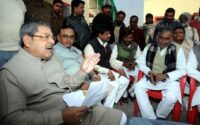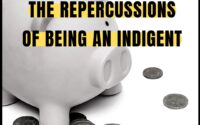Secret Ballot- A Necessity for Maintaining Democracy
This article is written by Riya Kaushik studying L.L.B. in Geeta Institute of Law and curated by Naman Jain, Bennett University, Greater Noida studying BBA-LLB
Secret Ballot is a method of voting, in which each person writes the name of their choice of the candidate in the election on a piece of paper and put that paper in a closed ballot so that the secrecy of voting is maintained and none can determine whom the other person voted. In this way, the secrecy persists in the secret ballot system.
The secret ballot was designed to eliminate the biasedness in voting and to solve the problem of privacy. The Supreme Court of India has agreed that the Secret Ballot is the Cornerstone of free and fair elections. The court also recommended the postulating of constitutional democracy. S. 94 of the Representation of the People Act gives the voter the privilege to maintain secrecy about his choice and whom he has voted. Moreover, it grants the right of confidentiality to him.
In my point of view, Secret Ballot is the core method to achieve a fair democracy. Nowadays, the viewpoint of the voter is being manipulated by the various unfair practices used by the political parties. They try to influence the choice of the voter by giving them various incentives and sometimes coercive activities are also used. After the casting of vote, they try to threat the voter and by coercive activities try to ask that whom they had voted.
In such a scenario, it is essential to provide voters a platform or a method through which the secrecy of their vote can be maintained. It would help the voters freely cast their votes without any biasedness or any threat.
It is the duty of a nation to ensure that the right of the voters should be maintained by the secrecy of the ballot so that the possibility of any voter being forced to disclose whom he had voted can be protected. The above would act as a positive constraint, and it is also the policy of the law. The constitution of India also secures this right of voters i.e., to choose their representatives freely. The constitution guarantees a free and fair election policy. Furthermore, the election commission must maintain this policy.
However, sometimes the voter voluntarily waves this privilege of non-disclosure. No one can stop him from doing so, nor can anyone file a complaint against him for doing so. Also, there is no provision under which a complaint can be filed against the person who forced him to disclose his vote. These are the major loopholes of the legislation that hinder the way to achieve a fair democracy.
Nowadays, the Electronic Voting Machine has replaced the Secret ballot system. However, the Electronic Voting Machine system is also not free from loopholes. The political parties have complained several times that the electronic voting machine system is not correct and was misused by the parties to get results in their favor. It is also not correct to say that the Secret ballot system is free from these loopholes. The probability of misusing the system of voting by any of the modes remains the same. However, a mix of both systems can prove to be efficient. While drafting a comparison, it is evident that the Secret Ballot is better than the Electronic Voting Machine as the electronic system can be hacked and manipulated, leading to various errors and frauds. However, in the secret ballot system, the possibility of these frauds is less as compared to the electronic voting machine.
The fundamental of a democratic country is that it should give citizens the right to choose their representative freely, and the secret ballot system ensures this free and fair right of the voter. So, for maintaining Democracy in India, a secret ballot is of utmost importance.
The reality that the secret ballot is also affected by the manipulation and fraud in the voting system is grave. Therefore, there is a need to analyze the flaws and formulate preventive measures efficiently. The election commission needs to combat these problems and try to initiate the steps against unfair competitive practices in elections by the parties to give the voters free right and make the democracy fully vibrant. The fundamental right of the voter to free and fair elections must be ensured.


